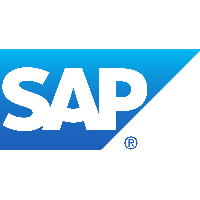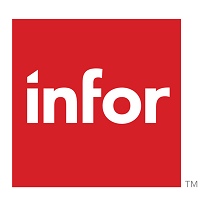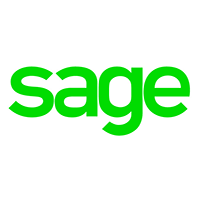What is supply chain management?
Supply chain management (SCM) software is designed to help companies meet customer demand in the most efficient, cost-effective manner possible by tracking the strategic movement of products and materials from their original source to the factory, warehouse, store, customer, and through return or disposal.
Each company with a supply chain will have requirements and processes that present unique challenges for customization and data collection. SCM software solutions streamline company processes, reduce costs from overages or manufacturing delays, collect data to make process improvements and forecasts, and improve relationships with suppliers and customers.
There are hundreds of software options available for supply chain management, and it can be difficult to know which will meet your specific industry and business goals. This buyer’s guide will help you develop an understanding of features, trends, and specific use examples in order to choose the best supply chain management software vendor for your company.
Find your new supply chain management software
How do I compare the best supply chain management solutions?
To help you in your search for the best supply chain management software, we’ve compiled a list of the top-rated supply chain and ERP software according to their features. Read on after the comparison chart for more information on how supply chain management software can help your company, or fill out the form at the bottom of the page to get free custom recommendations according to your needs.
Product
Warehouse management
Supplier Collaboration
Business Size
Pricing Tier
Deployment

SAP SCM
Yes
Yes
All
High-end
Cloud / On-Premise

Infor SCM
No
No
All
High-end
Cloud / On-Premise

Oracle SCM
Yes
Yes
All
Average
Cloud

FinancialForce SCM
Yes
No
All
Average
Cloud

Manhattan SCOPE
Yes
Yes
SMB
Average
Cloud / On-Premise

Sage X3
Yes
Yes
All
Low-end
Cloud / On-Premise
SCM solutions market overview
SCM software has extensive applications in almost any product materials-focused industry, such as logistics, manufacturing, automotive, retail, grocery, healthcare, and pharmaceutical. Companies that use SCM solutions produce finished goods, partially-finished goods, or raw materials used in production.
Like the move toward outsourcing of specialized tasks we see in other industries, many customer-facing organizations prefer to contract with outside companies for their materials and production processes. This lets them devote more resources to high-level innovation and their core business model. It also complicates the supply chain by letting partner organizations and overseas facilities manage processes and products with less centralized control. The multiplication of suppliers, distribution channels, and work-in-process inventory also creates higher levels of global competition and risk.
The extreme complexity of modern supply chains require strong centralized management tools and better visibility, which SCM solutions promise to deliver. An SCM software helps companies establish and automate pricing, transportation, and payment models to better manage their supply and distribution network, all while staying responsive to the ebb and flow of customer demand.
There are several different solutions available for supply chain IT buyers:
- Best-of-breed programs provide specific functionality for localized aspects of SCM, such as inventory, freight brokerage, or procurement, but usually won’t function as a company-wide solution.
- Integrated SCM suites support end-to-end management of supply chain processes from demand planning to materials sourcing, procurement, transportation, and delivery. SCM suites can be purchased as an all-in-one solution or as-needed in discrete modules.
- Enterprise resource planning (ERP) systems often provide built in supply chain management and offer the additional benefit of synchronizing business processes in one system. This can include SCM, customer relationship management (CRM), human resources, business intelligence, accounting, and more.
Common features of supply chain management solutions
Software will vary from vendor to vendor according to pricing, scale, and industry, but most supply chain management companies will focus around the following areas of functionality:
Inventory optimization
These features keep the appropriate amount of items stocked in the right locations, and alert the appropriate stakeholder to potential shortfalls in the warehouse, distribution center, or store. The consistent monitoring of the supply network minimizes overhead cost and enables uninterrupted delivery. The stock levels can then respond quickly to customer demands, seasonal fluctuations, promotional campaigns, and regular replenishment schedules. Inventory can be tracked using barcodes, serial numbers, or even RFID (radio frequency identification) tags. Standalone inventory management software is also available.
Warehouse management
These features track goods and materials within a warehouse or distribution center as a closed environment. The items can then be located quickly in any step of the process, including stock picking, shelving, shipping, and receiving. Warehouse staff can then move items to an intermediate storage location, a store, or directly to a customer. This feature sometimes comes as its own dedicated warehouse management system, and it is especially important for companies with larger networks of warehouses in multiple locations.
Demand forecasting
SCM solutions can use algorithms based on sales history, supply levels, and customer variables to help companies anticipate fluctuations in supply and demand. When companies can match inventory levels with projected demand, they can prevent over or under-stocking, which results in waste, lost sales, or in the worst case, lost customers.
Procurement
Businesses can manage and automate purchase orders from suppliers to quickly settle accounts. These tools integrate with financial management systems to approve and log expenses and create a clear audit trail baseline for future cycles.
Order fulfillment and returns
Order fulfillment tools help supply chain centers streamline the fulfillment process from inquiry through quote, invoice, shipment, and delivery. Fulfillment options within these systems can manage several order types and configurations like engineer-to-order (ETO), build-to-order (BTO), assemble-to-order (ATO), make-to-stock (MTS), or digital copy (DC). These systems also include features for processing returns and tracking payment through revenue recognition.
Supplier management
Sometimes referred to as supplier relationship management (SRM), these features ensure sourcing companies have visibility into supplier assets and metrics in order to maximize value on both ends. This feature may include performance and compliance tracking, risk measurement, supplier segmentation, and other capabilities.
What are the benefits of implementing supply chain management software?
Increased revenue
Supply chain management solutions provide companies with the means to increase their revenue by supporting better manufacturing techniques, greater input and communication from across the enterprise, and faster pivoting when problems arise. The reduced downtime and streamlined operations improve a company’s relationships with their customers and suppliers. And faster data sharing for financial reporting in turn improves overall accounting.
Decreased cost
Companies that implement a SCM software will quickly find their way around normal supplier bottlenecks, decrease labor costs, and improve transportation overheads. The combination of these factors, plus increased automation of invoices, work orders, and approvals means that companies spend less to get their products to market.
Improved analytics and forecasting
By aggregating, storing, sorting, and analyzing the data provided from every step in the supply chain, a supply chain management solution can give companies insight into how to improve their current processes and better forecast for growth. Using predictive analytics — which runs scenarios against historical data to identify possible outcomes — companies can be ready to react to potential threats that could pop up anywhere in the supply chain.
Regulatory compliance
Deep data stores on manufacturing processes, tracking of supplier and distributor behavior, and transparent tracking of individual products or lots throughout the supply chain, companies can quickly provide complete audit records.
Fewer disruptions
Today’s global economy requires that enterprise businesses react quickly to changing conditions. A transparent and connected supply chain ensures that companies can pivot between suppliers, distributors, and manufacturing plants to minimize disruptions. SCM software can alert companies to weather threats, political changes, widespread medical emergencies, and transportation changes, so the company can plan their response. This insight and foresight improves customer and supplier relations while ensuring maximum output.
SCM vendor trends
Corporate social responsibility (CSR)
Steeper competition, government regulations, and a more conscientious consumer population have caused many companies to adopt higher social and environmental standards to govern their supply chains. These may include ensuring fair labor wages, low environmental impacts, and government regulation of processes. Corporate conscience requires even greater visibility into supplier practices throughout the entire chain. Many SCM solutions incorporate regulatory compliance measures into their supplier management module in addition to data visibility that ensure companies can perform audits.
Ecommerce supply chains
Ecommerce has become a significant piece of the retail economy in recent years. Online retailers require integrated supply chain knowledge to ensure smooth manufacture and delivery of products. Integrated shipping and logistics tools are especially important for these retailers, as return customers often expect fast shipping up to the same-day. Fast picking, packing, and integrated inventory tools keep warehouses running smoothly and reduce shipping delays.
Drop ship providers
Some stores have moved away from the brick-and-mortar model completely and instead sell through an online storefront as drop-ship organizations. These vendors essentially function as distributors, which means they need efficient solutions for demand planning, inventory control, and order fulfillment, rather than traditional point-of-sale (POS) software.
On-demand SCM solutions
Supply chain management has seen lower levels of software-as-a-service adoption than other verticals (such as customer relationship management or human resources). This owes, in part, to the complexity and dispersion of the SCM industry itself, but many middle-market suppliers and distributors are using web-based applications to better satisfy the logistical demands of large clients at a lower cost — and without formal IT infrastructure.
Getting executives on board for SCM products
Before you decide on any specific products, make sure to get support from stakeholders within the company, especially leadership. Many companies form a software buying committee to define business needs, budget, and a strategy for measuring ROI. Here are some SCM talking points for specific executives:
CEO
Your CEO will want to know about the big picture:
- How can SCM solutions improve our core business model?
- How can it set us ahead of competitors or pave the way for relationships with new partners and customer segments?
The right SCM solution can help your supply chain scale and mature with future growth by automating routine logistics tasks like invoicing, receiving, and inventory and centralizing management of suppliers, customers, and goods. SCM vendors can also provide powerful business insights through modeling and analytical tools that help your company make proactive decisions and outperform competitors.
CIO/CTO
Your chief information officer or chief technology officer can evaluate the technical nuances of available solutions. They can provide insight and answer:
- How will a new system integrate with the business tools you already use?
- Which vendors provide the highest level of security and support?
- Which deployment model (on-premise, cloud, or hybrid) is best suited to your existing IT infrastructure?
Since your CIO supports business goals with relevant technology, you probably won’t have much trouble getting them on board. But if they’re clinging to a legacy system or a hodgepodge of outdated programs, you’ll need to pinpoint the areas where these systems underperform. Consider whether current system silo data, create compliance issues, make runtime errors, or don’t mesh with optimal workflows. A formal SCM solution will provide better end-to-end functionality and bring the added promise of updates and support.
CFO
Your chief financial officer or chief revenue officer will want to know the cost and value-add potential of new software. You’ll need to draw out an estimate of both upfront cost including license purchase, installation fees, data migration, and implementation support and total-cost-of-ownership. Cloud options may save on upfront costs but require more long-term budget consideration. Some software vendors often provide ROI calculators, but you will want to create your own calculations based on your company’s specific cost and revenue streams. An SCM solution can help your company reduce labor hours and administrative costs by moving previously manual workflows to an automated, digital platform. This automation can also shorten cycle times for fulfilling customer requests and permit faster revenue recognition, especially when supply chain management is integrated with accounting software. For larger supply chains, even a small improvement, when replicated across multiple centers and geographic regions, can yield huge annual savings.


